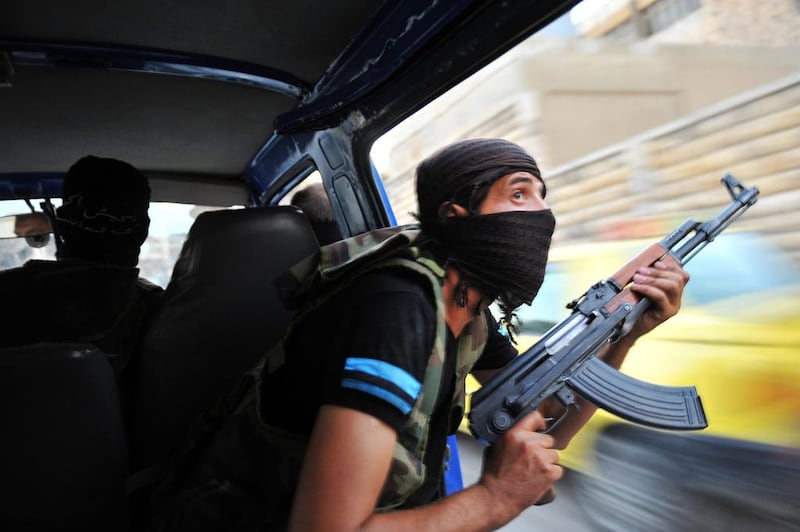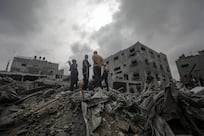Even as I write this, the likelihood that Aleppo’s war will be frozen is retreating. While the Assad regime has been talking with the UN about a brief ceasefire, it has also sent its troops to try to recapture the northern parts of Syria’s largest city.
One step forward, two steps back. The United Nations, with a paucity of viable political options to end the grinding Syrian civil war, has opted for the smallest possible victory: minimising immediate murder.
The proposal that the UN envoy Staffan de Mistura has been touting – and which, early last week, he appeared to believe would happen – is to “freeze” the conflict, first for a few weeks, then perhaps for longer. By returning as many people as possible to their homes, the UN believes it will have made some progress towards ending the conflict.
But that depends on what is meant by ending the conflict.
Certainly, removing Syrians in Aleppo from the risk of immediate death is laudable. But those who believe freezing Aleppo’s war will end the suffering of some Syrians or end the civil war altogether have short memories. Those who believe the former have forgotten the experience of Homs last year. Those who believe the latter have forgotten 40 years of Assad rule.
Start with Homs, where, in May last year, a ceasefire between the rebels and the regime was agreed and the rebels withdrew.
With the regime’s forces back in charge, the risk of death certainly diminished. But the grinding, collective punishment of Homs began. Accounts of what happened in Homs in the weeks and months after the regime regained control testify to this.
In order for residents to return to their homes, they had to have written permission from the regime – and that would be granted only after extensive inquiries and after an impossibly high bureaucratic threshold was met.
Take one small example. Residents who wished to return to their homes – those homes that were still standing – had to prove, among other things, that they had paid utility bills in full before they were displaced. Given that water and electricity bills in Syria are paid in arrears – in Syria’s case, every three months – every family would find it impossible to prove it had paid its bills in full, thereby handing the regime a simple bureaucratic reason to deny access, pressure families and punish collaborators.
Writ large, this is classic Bashar Al Assad. The regime’s method of control is to build the bureaucratic umbrella to its purposes. It can then plausibly control access.
Having lived in Syria, I have seen first hand how this umbrella of control works, both in daily, bureaucratic life and in bigger issues.
It is the reason why, from the beginning of the uprising, Mr Al Assad has insisted any discussion about reforms must be conducted inside Syria and by parties of whom he approves – he thus controls both the physical space (because which opposition figure in exile would be so foolish as to walk back into Mr Al Assad’s lair?) and the political umbrella (because after four decades of hollowing out the politics of the country, there are no independent groups left).
Freezing the conflict, then, merely replaces one type of suffering with another. Instead of the daily risk of death from the bombs of the regime, the residents of Aleppo would be entirely at the mercy of the government’s bureaucracy, unable to return to normal life without permission and always at the risk of collective punishment and arbitrary arrest. Thousands of prisoners in Homs are currently on hunger strike to protest against their detention without trial. Far from the eyes of the world, the regime is continuing its punishment.
It is profoundly depressing that the conflict has reached this stage. But entirely understandable: there is no muscle behind the UN envoy’s words. He is talking to the Assad regime while neither wielding sticks nor offering carrots. On the other side, both Russia and Iran are handing the regime serious military and financial support.
The UN proposal is meant to be the beginning of a process that can be rolled out across Syria. In one sense, it is. Mr Al Assad seeks to have a monopoly on the means of violence, to be the only group able to control a population by force.
He is close to achieving that in Syria’s largest city. He will then roll out that control across the entire country, with entirely predictable results.
falyafai@thenational.ae
On Twitter: @FaisalAlYafai





